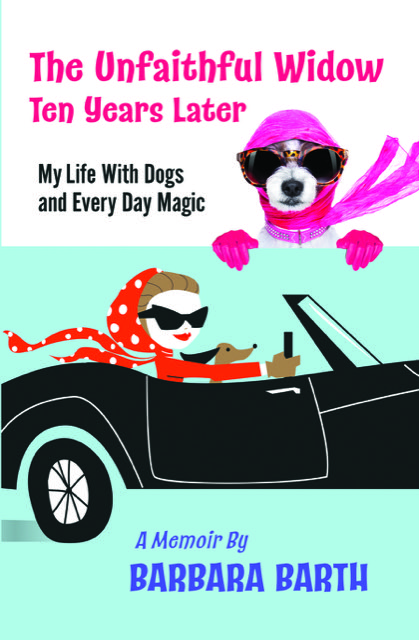Who wouldn’t want to become a famous bestselling author? If you’re reading this post right now, it’s probably safe to say that it’s one of your dreams. However, an amazing book doesn’t just happen overnight. You need to put in the work to make it happen — and that means building writing habits that will lead you to success. Here are five writing habits of famous authors, as well as actionable tips on how you can adopt them for yourself.
1. Stephen King — write every day, no matter what.
One of the most oft-cited pieces of writing advice is to simply write as much as you possibly can — and while you may have already heard it a thousand times, this particular recommendation bears repeating. After all, Stephen King claims to write 2000 words a day, every day (even on holidays, his birthday, and during emergencies!) and he’s one of the most prolific, successful authors of all time.
This doesn’t mean you have to write 2000 words a day with no exceptions, and certainly not right away. But you should start easing yourself into a routine of writing at least a little every day. Use writing prompts or a character name generator, if you’re stuck on what (or who) to write about. Then try to set a specific time to write and stick to it, gradually increasing your word count over time. But don’t beat yourself up for skipping a day, or if you don’t think your work sounds good! It’ll take practice to get into the rhythm of constantly writing, and writing well. The key is just not giving up.
Now, speaking of setting a designated time to write…
2. Ursula K. Le Guin — get writing done first thing in the day, if you can.
Ursula Le Guin’s famously excellent writing schedule has been floating around the blogosphere lately, but just in case you haven’t seen it, allow me to enlighten you. She would wake up every day at 5:30 am, eat breakfast at 6:15, and start writing at 7:15. By noon, most of her work would be done for the day and she’d devote the rest of it to reading, music, cooking, and correspondence. This schedule ensured that she’d write when she was at her freshest, leaving the afternoon and evening to replenish her creative energies with other activities.
Not everyone will be able to do this — indeed some authors, like Franz Kafka and H.P. Lovecraft, have famously written only during the witching hour (though this may have had something to do with their dark subject matters). And if you have a job, kids, or some other obligation that occupies your morning, Le Guin’s pattern will certainly be harder to follow.
3. Zadie Smith — write with no Internet connection.
This piece of writing advice from Zadie Smith’s famous “10 rules for writers,” distilled from her own experience, is undoubtedly hard to swallow: “Work on a computer that is disconnected from the Internet.” But trust me that it’s one of the best things you can do for your writing, and indeed for your concentration in general. Working without the constant looming distraction of the Internet (needless to say, that goes for your phone as well) will not only make you a better writer, but a more focused, even-tempered person.
Now, I know what you’re thinking: what about research? Yes, we all claim we need the Internet to conduct research for our writing, but in practice it’s almost always more distracting than it is helpful. So if you’re writing sans Internet and you come across something you’re not sure about, simply make a note to Google it later. You’ll be surprised how little it matters, and how much work you actually get done.
Of course, if you’re writing a historical novel or other period piece of some kind, this may be more difficult to manage. But as long as you have all your notes and research materials on hand, you should be fine to spend at least a few hours “unplugged.” Bonus points if you work from a library, where you can do research using actual books!
4. Andrew Sean Greer — take down observations wherever you go.
This one comes from a personal perspective, based on advice Greer gave during a book event I attended in January 2019. One member of the audience asked whether he had really visited all the places written about in his Pulitzer Prize-winning book, Less; for those who haven’t read it, the main character travels to Mexico, Italy, Germany, Morocco, India, and Japan in just under 300 pages.
Greer revealed that not only had he been to all of these places, but that he took detailed notes on everything he saw during each visit — and that he lifted his descriptions of each place directly from these notes. That is to say, not a single detail about the settings was fabricated. From the architecture to the local cuisine, everything came from his own personal observations.
Again, as with the Stephen King tip, you don’t have to take it quite this far. But consider carrying a notebook with you, writing down details about the places you go, people you see, offbeat news you watch, and things you experience. You might find inspiration through travel, as Greer did, or you might simply start people-watching more carefully around your neighborhood. In any case, these real-life details are invaluable to helping your writing seem more vivid and authentic.
5. Muriel Spark — acquire a cat (or some kind of writing buddy).
Muriel Spark claimed that the most writing-conducive habit is none other than working with a cat nearby. As silly as this might sound, it’s hard to argue with her logic: “The cat will settle down and be serene, with a serenity that passes all understanding. And the tranquillity of the cat will gradually come to affect you, sitting there at your desk, so that all the excitable qualities that impeded your concentration compose themselves and give your mind back the self-command it has lost.”
For those who aren’t quite ready to commit to a pet, you can always find a writing buddy — a human one, that is — to sit across from and motivate you. Ideally, this won’t be a close friend; or if so, it shouldn’t be a friend who’s willing to blow off work for a good time. Just like a cat, a solid, serious human presence should help calm and focus you, because you’ll be accountable to them. This person doesn’t even have to be a writer themselves; they just have to keep you writing. As, indeed, all these writerly habits hopefully should.
Do you have a tried-and-true habit that helps you write? Tell us about it in the comments below!
About Author Savannah Cordova @ Reedsy: Savannah Cordova is a writer with Reedsy, a marketplace that connects authors and publishers with the world’s best editors, designers, and marketers. In her spare time, Savannah enjoys reading contemporary fiction and writing short stories. Naturally, she’s a big fan of plot twists (when they’re done right).







Good suggestions!
I love the advices and if those worked for these authors it should work mere mortals like us right? Thanks for sharing.
Gayathri @ Elgee Writes